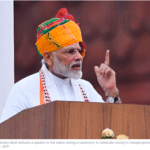The National Finance Commission (NFC) in Pakistan has come under scrutiny due to demands from multilateral institutions like the IMF and World Bank for revisions. The NFC, a constitutional body, plays a crucial role in distributing resources between the Center and provinces. The 7th NFC Award, implemented in 2010, significantly altered the resource distribution formula, increasing the provinces’ share to 62% and reducing the Center’s share to 38%.
However, challenges have emerged with the current NFC framework. The tax to GDP ratio has declined, impacting revenue generation. This has led to a growing fiscal deficit, where expenditures exceed revenues, creating economic instability. Political parties have differing stances on the NFC, with calls for revisiting the award to address issues like tax collection and expenditure management.
Former Finance Minister Miftah Ismail highlighted concerns about fiscal mismanagement since the 7th NFC Award. Provinces have seen substantial increases in spending without adequate revenue generation, while the federal government has faced challenges in managing deficits. The imbalance in resource distribution has implications for economic competitiveness and development.
Moving forward, reforms are essential for the NFC. Establishing an independent body for research, evaluating outcomes in key sectors like health and education, and linking provincial resources to their revenue efforts are crucial steps. Addressing the reasons behind the failure to increase the tax to GDP ratio is vital for financial stability.
A comprehensive review and reform of the NFC are necessary to ensure sustainable fiscal management and equitable resource distribution between the Center and provinces in Pakistan.














